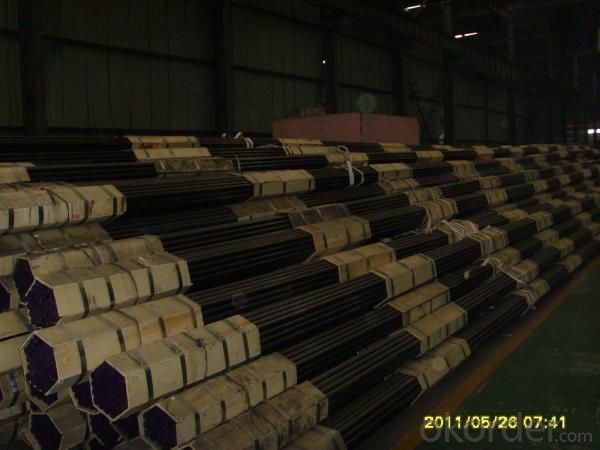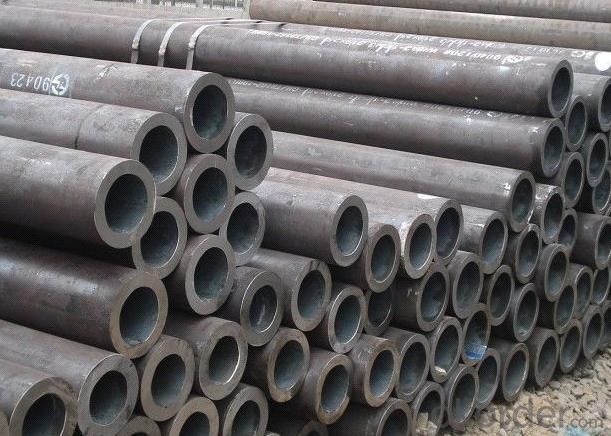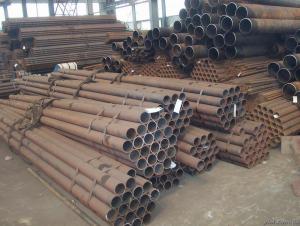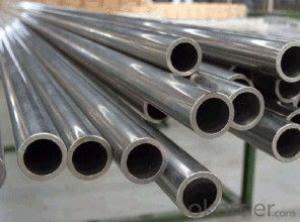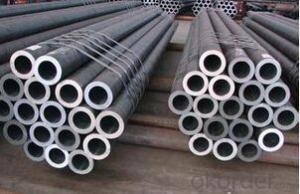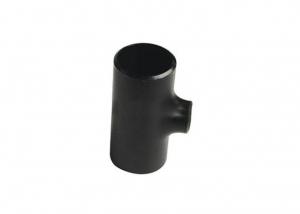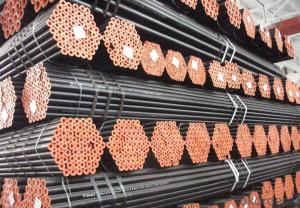Seamless Steel Pipe For Low Pressure Boiler
- Loading Port:
- China Main Port
- Payment Terms:
- TT or LC
- Min Order Qty:
- 50 MT m.t.
- Supply Capability:
- 5000 Tons Per Month m.t./month
OKorder Service Pledge
OKorder Financial Service
You Might Also Like
| Seamless steel tubes and pipes for low and medium pressure boiler |
| |||||||||||||||||||||||||||||||||||||||||||||||||||||||||||
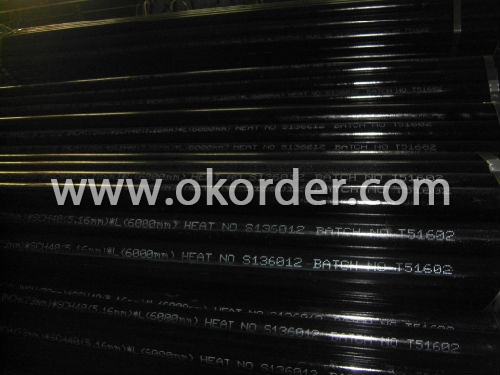
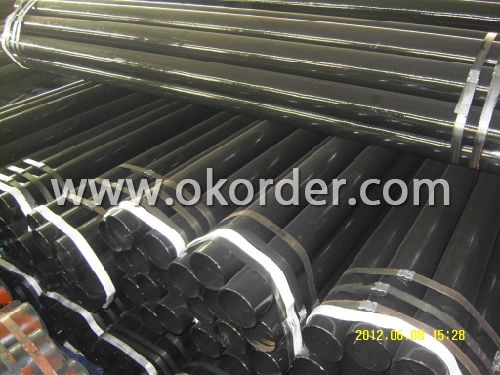
- Q: What are the common applications of steel pipes in the water distribution system?
- Steel pipes are commonly used in water distribution systems for various applications such as transporting water from treatment plants to distribution points, carrying water under high pressure, and providing a durable and long-lasting solution for underground water pipelines.
- Q: How are steel pipes used in the telecommunications network infrastructure?
- Steel pipes are widely used in the telecommunications network infrastructure for various purposes. One of the primary uses of steel pipes in this industry is for the installation of underground cable conduits. These conduits protect the telecommunications cables from external factors such as moisture, rodents, and physical damage. Steel pipes provide excellent strength and durability, ensuring the long-term protection of the cables. Additionally, steel pipes are used in the construction of telecom towers and antenna masts. These structures need to be sturdy and able to withstand harsh weather conditions. Steel pipes offer the necessary strength, stability, and resilience required for telecom towers to support antennas and other equipment. They can be easily assembled, allowing for efficient deployment and maintenance of the network infrastructure. Moreover, steel pipes are essential for the installation of fiber optic cables. Fiber optic cables transmit data at high speeds using light signals. To ensure optimal performance, these cables need to be protected from any external interference. Steel pipes serve as a conduit for fiber optic cables, shielding them from electromagnetic interference and other potential disruptions. In summary, steel pipes play a crucial role in the telecommunications network infrastructure. They are used for the installation of underground cable conduits, construction of telecom towers, and protection of fiber optic cables. The strength, durability, and versatility of steel pipes make them an ideal choice for ensuring the reliability and functionality of telecommunications systems.
- Q: What is the minimum wall thickness for steel pipes?
- The minimum wall thickness for steel pipes depends on several factors, including the intended use of the pipe and the specific industry standards and regulations. In general, the minimum wall thickness is determined by considering factors such as the pipe's diameter, the material strength, and the pressure or load it will be subjected to during operation. For example, in the oil and gas industry, the minimum wall thickness for steel pipes is usually specified by industry standards such as API 5L or ASME B31.3. These standards take into account factors such as the pipe's diameter, the material's yield strength, and the maximum pressure it will be exposed to. In other applications, such as structural or mechanical engineering, the minimum wall thickness for steel pipes is determined based on factors such as the pipe's intended load-bearing capacity, the desired safety factor, and any applicable building codes or regulations. It is important to consult the appropriate industry standards, codes, or regulations to determine the specific minimum wall thickness requirements for steel pipes in a given application.
- Q: Are steel pipes resistant to vibration?
- Yes, steel pipes are generally resistant to vibration due to their high strength and rigidity.
- Q: Can steel pipes be used for pharmaceutical manufacturing?
- No, steel pipes are not typically used for pharmaceutical manufacturing as they can pose a risk of contamination and corrosion. Instead, pharmaceutical manufacturing typically relies on materials such as stainless steel or specialized polymers that are more suitable for maintaining sterile conditions and ensuring product purity.
- Q: What steel pipes are buried for outdoor heating pipes? Seamless or welded tube? Are there any rules for specific countries? Can use the seamed tube?
- Where outdoor heating pipes are buried, what steel pipe shall be referenced by the 11.1.2 code for installation of outdoor piping?:This chapter applies to the quality inspection and acceptance of the outdoor heating pipe network installation of the plant and the civil building group (residential area) with the saturation steam pressure not greater than 0.7MPa, and the hot water temperature not exceeding 130 degrees celsius.
- Q: Can steel pipes be used for underground fuel storage systems?
- Yes, steel pipes can be used for underground fuel storage systems. Steel pipes are commonly used for underground fuel storage due to their durability, strength, and resistance to corrosion. Additionally, steel pipes can be easily welded and sealed, ensuring a secure storage system for fuels.
- Q: Galvanized steel pipe, PPR pipe, PE pipe, U-PVC pipe and HDPE double wall corrugated pipe and what is the difference between the characteristics of
- Galvanized steel pipe is a kind of antirust steel pipe, often used in relatively high water supply pipeline or hot water pipeline, the price is higher, can use for at least 30 years;PPR pipe is a kind of polypropylene plastic, which is commonly used in environmental protection plastic pipes, but only suitable for low temperature occasions. It is mainly used for water supply;
- Q: What are the safety considerations while handling steel pipes?
- When handling steel pipes, some key safety considerations include wearing appropriate personal protective equipment (PPE) such as gloves, safety glasses, and steel-toe boots to protect against potential injuries. It is important to be cautious of the weight and size of the pipes, using proper lifting techniques and equipment to prevent strains or accidents. Additionally, workers should be mindful of the sharp edges and potential for cuts or punctures, ensuring they have a clear and organized workspace to minimize the risk of tripping or falling. Regular inspections of the pipes for any damages or defects are also crucial to prevent accidents and maintain a safe working environment.
- Q: Are steel pipes suitable for conveying fluids?
- Steel pipes are well-suited for the transportation of fluids. They have been extensively utilized across various industries for numerous years due to their robustness, strength, and resistance to corrosion. These characteristics render steel pipes an optimal choice for the conveyance of fluids like water, oil, gas, and hazardous substances. Moreover, the sleek interior surface of steel pipes facilitates smooth flow and prevents blockages, thus making them appropriate for applications that necessitate uninterrupted and seamless fluid movement. Additionally, steel pipes can endure high-pressure and high-temperature conditions, enabling their use in both high and low-pressure fluid transmission systems. In summary, steel pipes are a dependable and efficient alternative for fluid conveyance in a wide array of industries, including oil and gas, water treatment, chemical processing, and many others.
1. Manufacturer Overview
| Location | Jiangsu, China |
| Year Established | 1992 |
| Annual Output Value | 60,000Tons |
| Main Markets | Europe and the United States;Canada; India;Bulgaria; South Korea;etc. |
| Company Certifications | API 5L;API 5CT;GB/T19001-2008 idt ISO9001:2008 |
2. Manufacturer Certificates
| a) Certification Name | |
| Range | |
| Reference | |
| Validity Period |
3. Manufacturer Capability
| a) Trade Capacity | |
| Nearest Port | Yan Cheng |
| Export Percentage | 50% - 60% |
| No.of Employees in Trade Department | 400-500 People |
| Language Spoken: | English; Chinese; Spanish |
| b) Factory Information | |
| Factory Size: | Above 110,000 square meters |
| No. of Production Lines | Above 10 |
| Contract Manufacturing | OEM Service Offered; Design Service Offered |
| Product Price Range | Average |
Send your message to us
Seamless Steel Pipe For Low Pressure Boiler
- Loading Port:
- China Main Port
- Payment Terms:
- TT or LC
- Min Order Qty:
- 50 MT m.t.
- Supply Capability:
- 5000 Tons Per Month m.t./month
OKorder Service Pledge
OKorder Financial Service
Similar products
Hot products
Hot Searches
Related keywords



